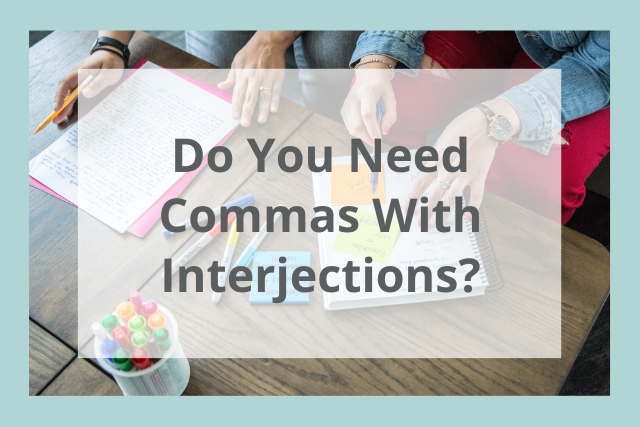
Interjections are words that we use to show emotion. Interjections are usually only one or two words, and they help set the tone of a statement. They can also be used as filler words when someone isn’t speaking clearly.
Examples of interjections include oh, ahem, oops, and yikes. When interjections are used at the beginning or in the middle of a sentence, we put a comma after them.
Interjections are a unique part of speech. They are small words that are interjected into our speech and writing to demonstrate emotions or act as filler words.
Usually, interjections are only one or two words. Interjections can stand alone as their own sentences and are often followed by an exclamation point. They can also be used at the beginning or in the middle of other sentences. When this occurs, we put commas after the interjections.
Interjections at the Beginning of Sentences
- Oh, I don’t care where we go.
- Oh well, it’s his loss.
- Well, I can’t say I’m surprised.
- Yeah, three o’clock on Tuesday is great.
- Ew, I hate sweet potatoes with marshmallows.
- Wow, you’re really talented.
- Sorry, I didn’t see you there.
- Shh, she’s talking!
- No, he doesn’t like cats.
- Holy cow, that movie was wild!
Interjections in the Middle of Sentences
- I baked a cake, and, voila, look at this masterpiece!
- I think he’s great, and, well, we’re in love.
- She was walking along when, bam, she ran into a wall.
- He told me he was going to, uh, London or Paris, I think.
Some of these interjections can be set apart with em dashes and an exclamation point for extra emphasis. This is a stylistic choice that writers can make. Let’s look at two of those examples again.
- I baked a cake, and—voila!—look at this masterpiece!
- She was walking along when—bam!—she ran into a wall.
